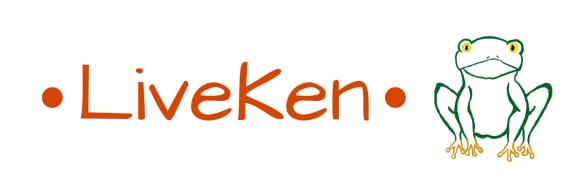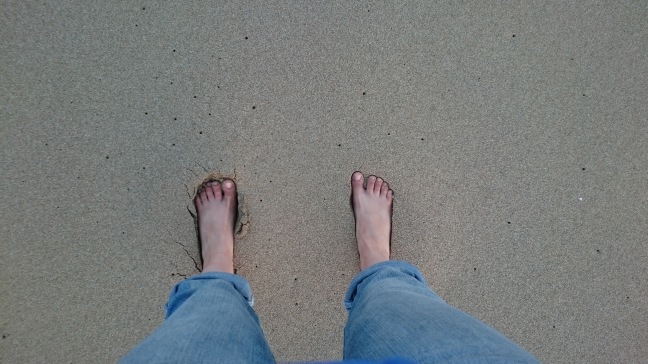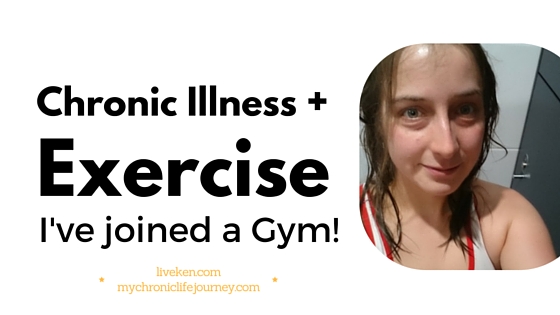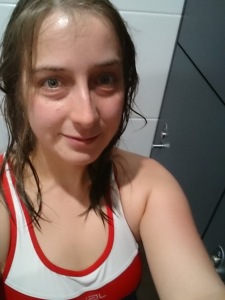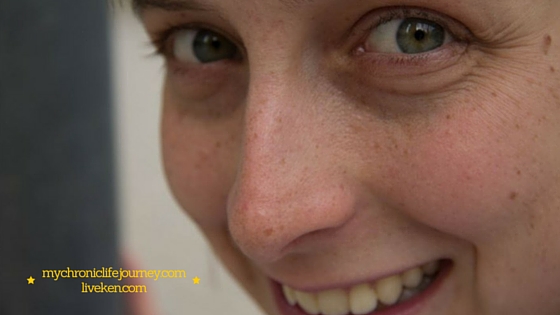A Quick No Buy Challenge Update: Although I was tempted by some of the clearance sales in town (hello fluffy warm down jacket) I did not make any purchases this week that weren’t experience related and shared with those that are important to me. I had lunch with my sister while she was in town (over from Hong Kong for a wedding) and E and I spent a wonderful morning out at the zoo for a behind the scenes tour and breakfast on Sunday.
And now for the post… (Apologies this is quite a long one for me!)
Those of you who know me in real life, and those who have been following my blog for quite a while, know that the ONE thing I really REALLY want from my life is to be a mum.
Unfortunately, around the time E and I were finally having serious discussions about potentially starting a family in the next year or two I had my first major crash.
Almost 3 years later and we’re just beginning to start having serious discussions again, but this time my health is the major road block.
Starting these conversations have been difficult this time around. E has not really wanted to talk about it because he feels like he has to be the bad guy saying No when he knows it’s something that I really want. He has wanted to wait until I was physically capable before we had the hard conversations but I think I’ve now made him realise that not talking about it has been hurting me more than having honest conversations.
Being a scientist at heart he really needs us to have logical and rational conversations about how this will all work and he struggles when I get overly emotional during the conversations.
So… where have we got to?
We have agreed that I need to set some goals to get to a point where I feel confident that I can physically cope with the pregnancy and the uncertainties that come with raising a child.
The goals I have set myself are as follows:
I believe that I would be physically capable of handling the stresses and uncertainties of pregnancy and raising a child if I can achieve the following and maintain it for at least 2-3 months with no major crashes/flare ups:
- An average step count of around 7,000
- The following average breakdown of activities
- Less than 30% Rest/Mindless Activity – on average around 25% (meditation, naps, audiobooks, tv, Facebook, and travel when E is driving)
- 10-25% Mental Activity (work, blogging, reading articles, etc)
- around 50% Physical/Social Activity (exercise, housework, outings, etc)
To determine how I’m tracking for these goals I track my daily activity using a time tracking app on my phone and my steps using Garmin Connect and my watch.
As an example of where I am at the moment, my breakdown for February was:
- Average steps 5,404
- 39% Rest/Mindless
- 15% Mental
- 24% Physical
- 20% Social
I also break each category (mental, physical, and social into high and low activity). Overall my February breakdown for this was:
- 39% Rest/Mindless (as above)
- 26% high activity (exercise of any kind, work, budget review, large groups of people or stressful situations, cooking complex meals, baking, gardening, etc)
- 32% low activity (reading, writing in my journal, one on one or small group activities, showering and dressing, reheating leftovers/simple meals, etc)
*Note percentages may not add up to 100%. I am using the percentages provided by the app and I don’t believe it rounds decimals correctly to whole numbers.
As you can see, I’ve improved a fair bit since my crash in November (my average step count was down to 2,000-3,000)
The next step is to have discussions around the difficult questions like:
- What will happen if I’m having a crash?
- How will I cope with the day to day activities of looking after a newborn/toddler/older child?
- What kind of support do I need for this to be possible?
- Not only CAN I have a child but SHOULD I? Is it fair to the child?
What I’d like to do is get your input. If you have had children of your own while dealing with chronic illness like Fibromyalgia or ME/CFS, how did you cope?
Even if you don’t have a chronic illness, do you have any tips for minimising the impact of flares?
Here are my thoughts so far:
What will happen if I’m having a crash?
Flares and crashes are part of the parcel with many chronic illnesses so it’s important to have some sort of system in place for dealing with them. The first 5 years will be the most difficult to cope with as the child will be too young to actually understand what’s wrong when mummy needs to go lie down and isn’t able to do all the things they want to do.
Depending on the severity and duration of a crash/flare up there are several things that I can do to make sure I’m not neglecting my child during this time…
- Be realistic about what is really essential to be a ‘good parent’. A young child doesn’t necessary understand what is going on but they are aware of if their parents are there for them or not. Realistically, the occasional day of ‘low energy activities’ is not going to be detrimental to my child’s health and mental well being as long as I’m with it enough to be there with them.
- Have stand by ‘Low Energy Activities’ available. This could mean a day in bed reading stories, watching tv/movies, or listening to music. It could mean allowing my child to have free play time while I observe from the couch.
- Have family support available on call if needed. At this point in time we are very lucky to have a large network of family support with reasonably flexible schedules. E’s Amma and Uppa, his parents, and my Gran are retired, my mum works part time, and my dad has a fairly flexible schedule. Obviously, they still have things that they do regularly and tend to fill up their schedules with other activities but between them all I’m fairly confident I could find someone at short notice who could help me out.
- Do my best to minimise the chances of a crash/flare up occurring. Obviously prevention is better than treatment, so having systems in place to minimise the likelihood of a flare is important. The ideas I’ve come up with (or found while researching this topic) are:
- With a new born, rest when ever the baby sleeps. During the first 4-8 weeks focus only on what is necessary – feeding, cleaning and resting with the baby. If possible, have support come in to do other tasks like cleaning, cooking, etc. (We already have a cleaner coming in once a fortnight, and – because I’m keen to use cloth for health and environmental reasons – I’d consider a nappy service for at least the first while).
- As the child grows, continue to pace your activities. Consider having regular days/times where the child is in someone else’s care (family, child care) so that you can still have regular rest breaks.
- Consider using a combination of breast and bottle feeding so that others can assist. This would be particularly useful for night feeds so that I can still get reasonable sleep. The impact of sleep deprivation on my health is one of our primary concerns at the moment.
How will I cope with the day to day activities of raising a…
Newborn?
From what I’ve read, the newborn stage (apart from the sleep deprivation) is relatively simple to cope with. As your baby is not yet mobile it is easy to do low energy activities with them. Most of your time would be spent just feeding, cleaning (nappy changes, etc) and cuddling your new little bundle.
As stated above, I’d consider having support services in place for cleaning, etc.
The verdict on breastfeeding vs bottle feeding for those with chronic illness is still out. Breastfeeding is simpler in that you don’t need to worry about sterilising bottles, making sure the formula is at the correct temperature, or just using up your energy in making up the formula. However, it uses much more energy to breastfeed and can leave you physically more tired (something that a person with chronic fatigue doesn’t really need) and you can’t share the task of feeding the baby.
Personally I’d still like to breastfeed, at least for the first few weeks if possible, but would be open to pumping and supplementing with formula so that E and others could help with feeds after the first few weeks.
To make breastfeeding (especially at night) as easy as possible in the beginning I would like my child to sleep next to me. However, due to my pain levels I tend to toss and turn at night and E is a very heavy sleeper so I wouldn’t want my child in the bed with us. I’d look at getting something like the arm’s reach co-sleeper which converts from a co-sleeper bassinet to a free-standing bassinet to a ‘read to me’ love seat. I’m interested in getting items that will have longevity in terms of usefulness and style.
As I mentioned above, my passion for sustainability and my own experience with disposable items near my nether regions (I’m allergic to disposable pads, etc) mean I’m keen to use cloth nappies on my child. I have done a lot of research on this topic and feel that it is doable even with limited energy and physical capabilities. With a young child you will already be increasing your washing requirements to keep their clothes clean, it doesn’t add that much to throw in a load of nappies every 2 days or so. It’s even easier if you use a nappy service that collects the dirty nappies once a week and washes and returns them.
Crawler/Toddler?
This in when I think things will start to get interesting. At this point in time I believe I’d be considering putting my child into some form of care (family members or child care) 1-2 days/half days a week so that I had some ability of pacing and having some more intensive rest.
I’d also consider going to spend days at other people’s houses (or have people over to visit) so that I have some support during the day.
Older Child?
As my child gets older I’d explain to them in age appropriate ways how my illness impacts our life and why I need rest periods.
Well, I’m starting to run out of steam and I have gone on for quite a while so I’ll leave it here for now (stay tuned for more as I continue to consider our options)…
Read More…
There are plenty of articles out there on this topic but here are just a few
Parents and Chronic Illness
10 Tips for Parents living with Chronic Disease
Caring for Your Child During a Chronic Illness Flare Up
Do you have any tips or advice you could share that would help us through this decision process?
Are there any other questions we should be asking ourselves?
